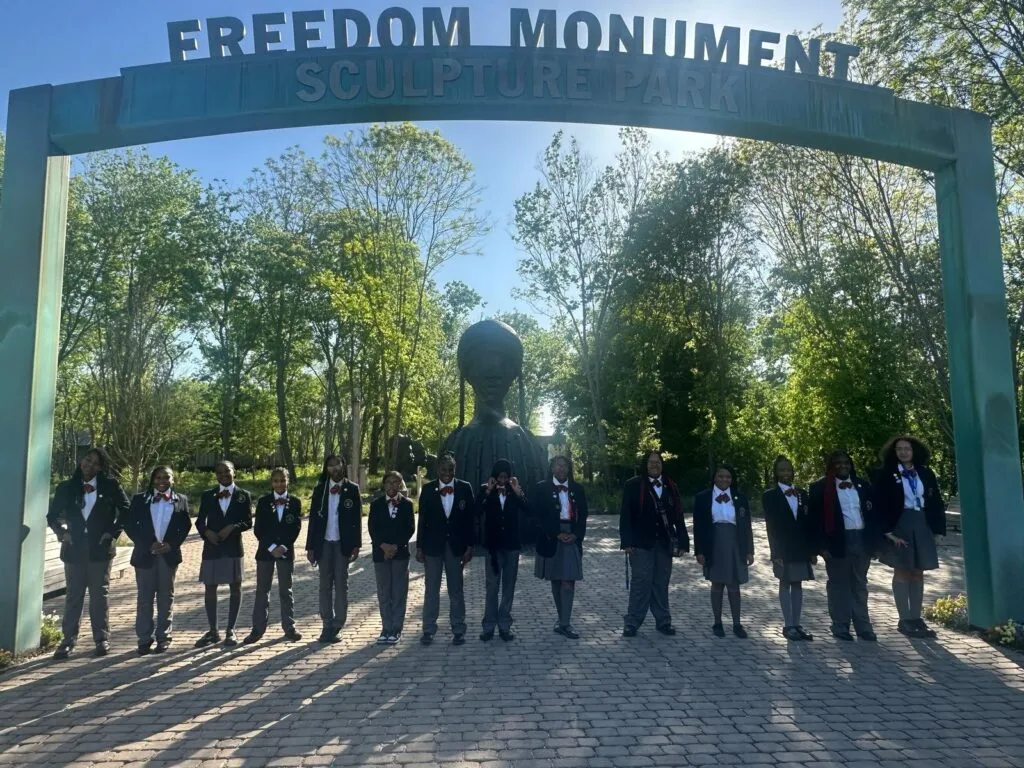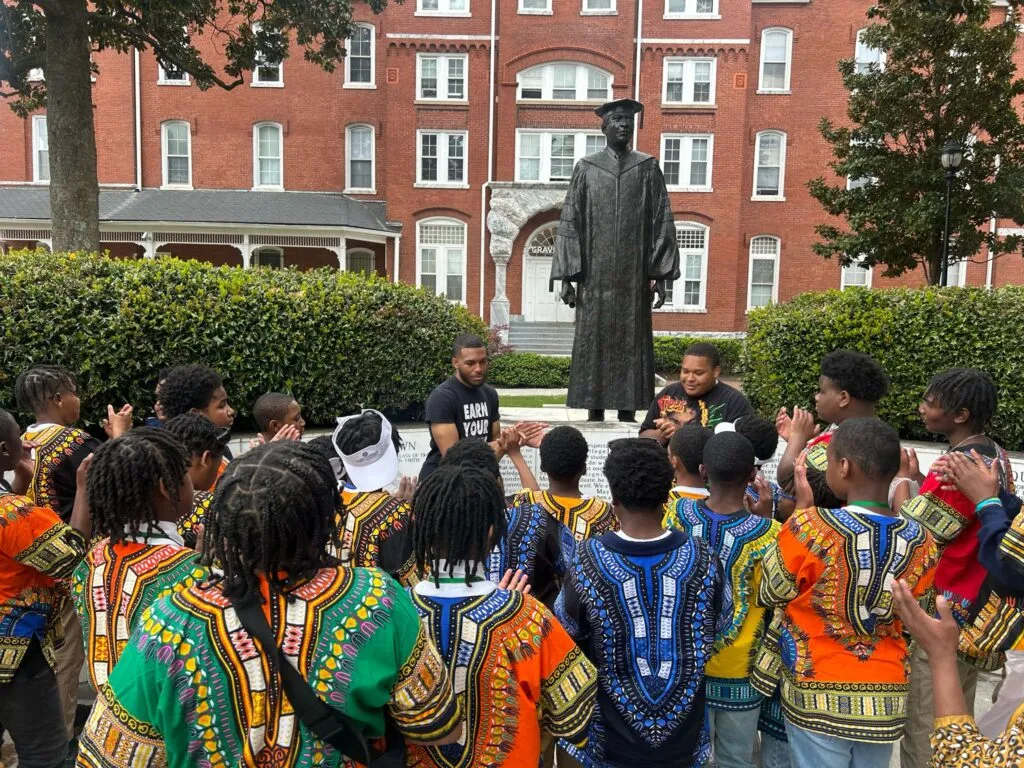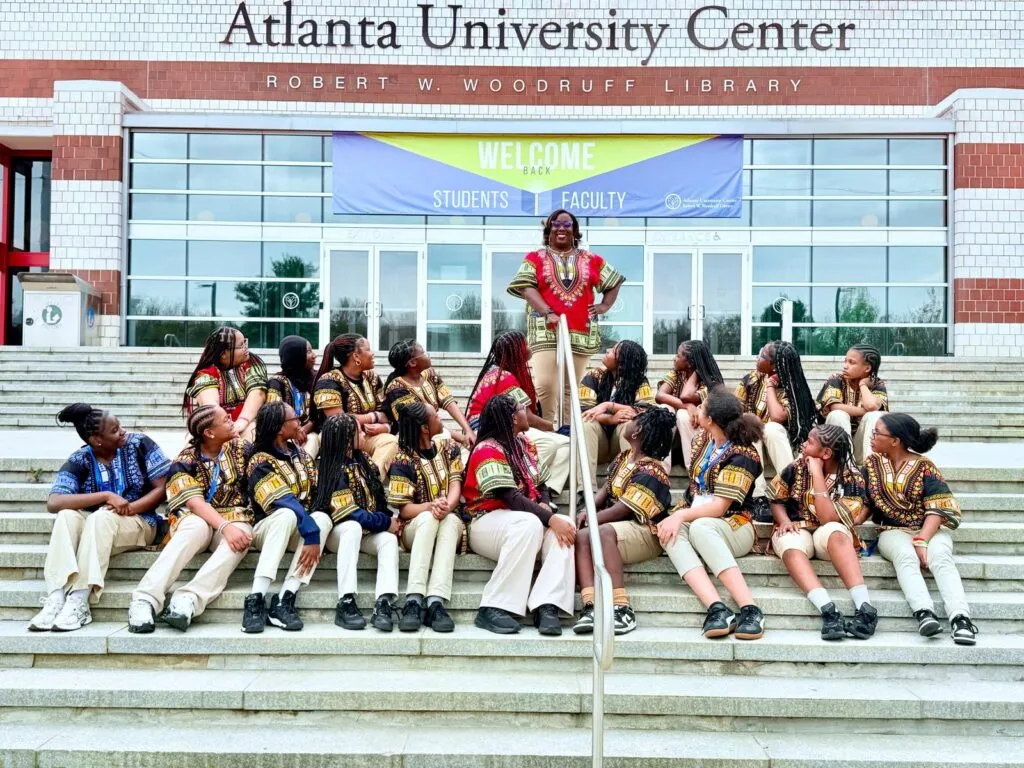
Empowering Global Leaders: The Transformative Impact of Principal Zenobia Story’s Educational Excursions at GLA Southwest
Global Leadership Academy Southwest (GLASW) is continuing its 20-year legacy of turning learning into an exciting adventure for its K-8 scholars through fun and educational off-site educational excursions! Led by Principal Zenobia Story (2024 Neubauer Fellow, Cohort 8), this K-8 school was founded with a unique educational mandate that centers its curriculum around a global perspective. “We are called Global Leadership Academy because part of our mission is to ensure that when scholars leave us in eighth grade, they will have a passport and will have traveled to specific places,” Story explains. “Our commitment to our scholars is that they will start their journey traveling, and that travel will help them understand how to be global leaders while making local impacts.”
That commitment has resulted in GLA’s signature global studies programming. “Our founder’s vision to prepare globally competent leaders led to the development of a curriculum that tailors our immersive on-site experiences to the social studies concepts —which we call ‘global studies’—that children learn in each grade. Each year then capstones with an off-site trip, with each grade traveling further and further from Philadelphia.” Kindergarteners, for example, learn about their immediate community through local experiences, while first graders explore downtown Philadelphia. From there, the range continues to grow outward: second graders expand on local trips, third graders visit the Amish country, and fourth graders travel to Harrisburg to learn about state government. The first out-of-state overnight trip begins in fifth grade, as students visit Washington, D.C., to explore the nation’s capital and African American’s contributions to its history.
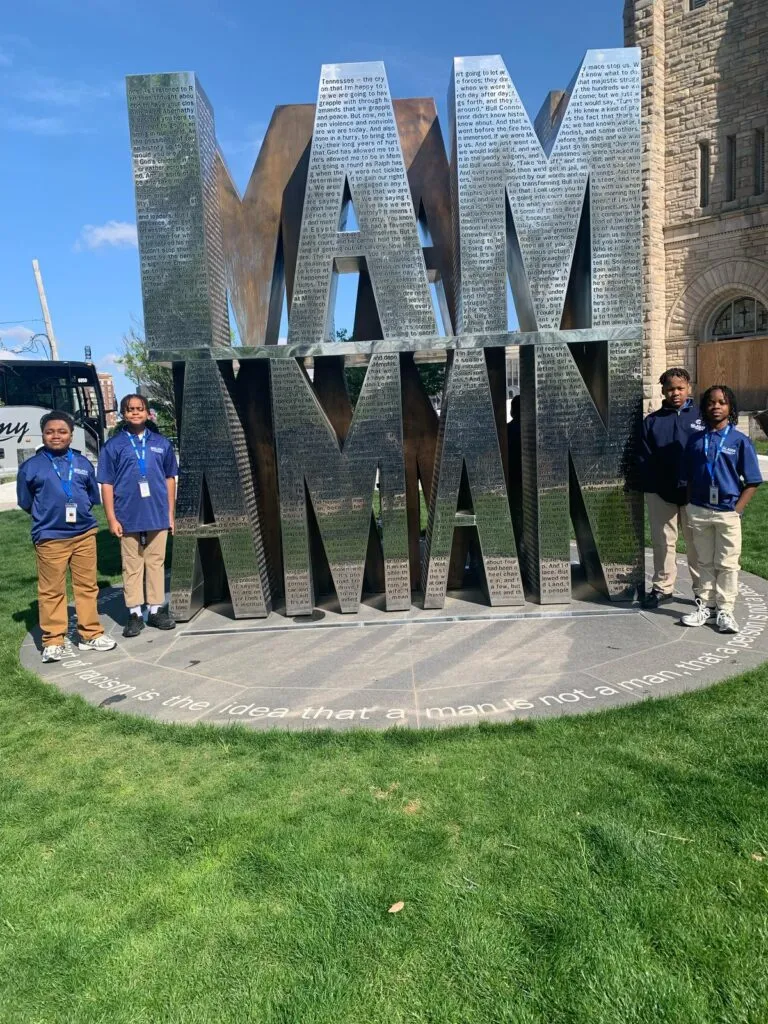
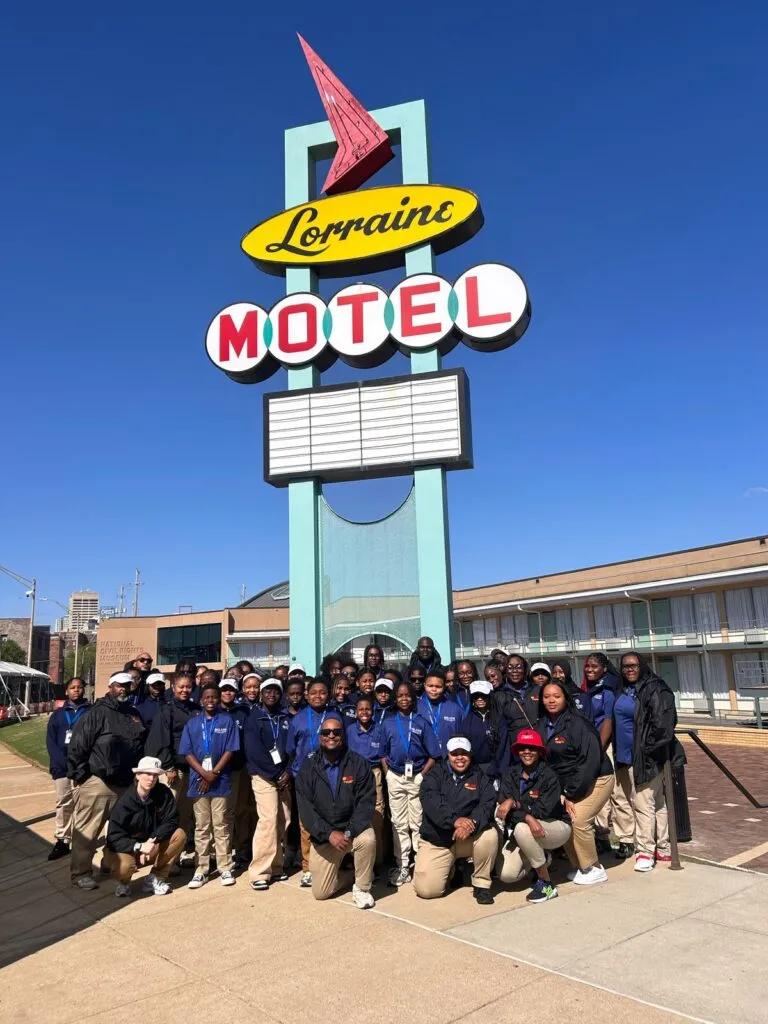
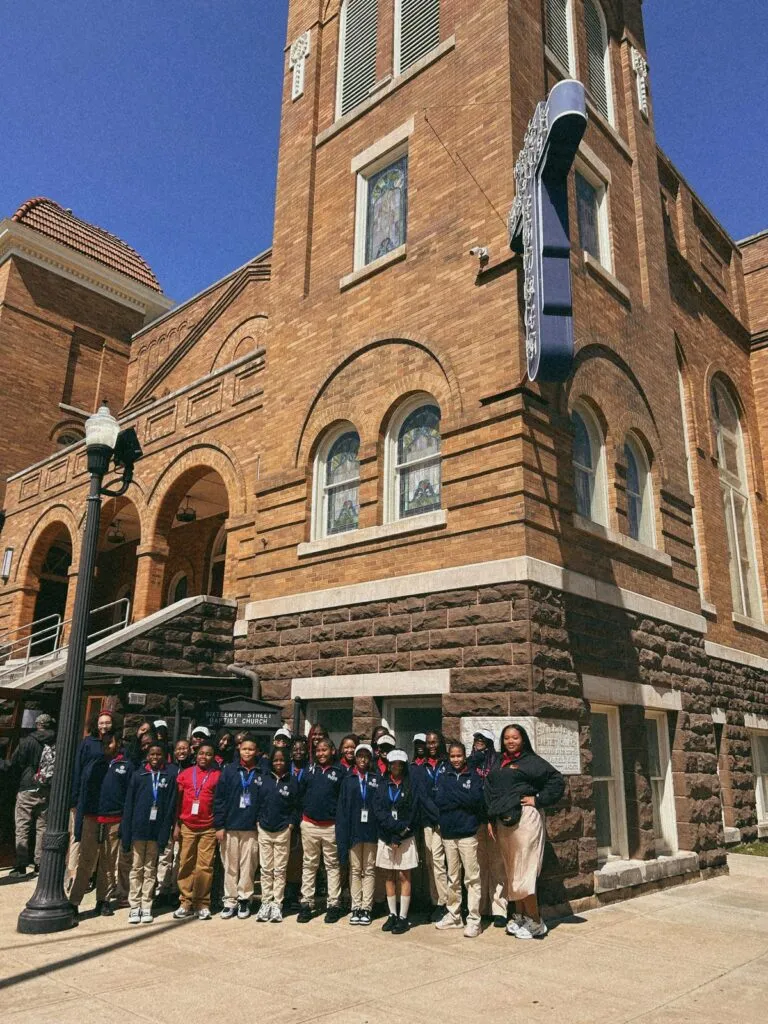
Zenobia’s dedication to broadening her scholars’ horizons, both nationally and internationally, is evident in the enriching learning experiences provided to her sixth, seventh, and eighth grade scholars. Sixth graders embark on a multi-day civil and human rights excursion, visiting Tennessee, Alabama, and Georgia. The excursion follows the paths of civil rights leaders like Dr. King and includes visits to historically significant sites such as the 16th Street Baptist Church, Kelly Ingram Park, the Edmund Pettus Bridge, and the National Civil Rights Museum. Seventh graders travel internationally, visiting Canada where they learn about the Underground Railroad and the lives and communities of the freed people who settled there. Eighth graders travel even further, with the Bahamas as a standard destination to study the transatlantic slave trade; past excursions have included trips to Shanghai, Kenya, and West Africa.
Principal Story emphasizes the transformative impact of these excursions, noting that they bring eight months of school learning to life, making it tangible and helping scholars make connections that will last a lifetime. She believes these experiences help scholars grow into active citizens civically engaged and ready to make a difference in the world. “These excursions have really grounded and strengthened my belief that the learning environment matters, and when children are emersed in the places that they have learned about, there are endless possibilities.”
Despite the program’s success, Story acknowledges that financial barriers are a concern. “Although we commit to not allowing finances to prevent a scholar from traveling, we have to aggressively fundraise in order to make that a reality.” Currently, only about 40 percent of scholars per grade attend the multi-day excursions, though she continues to work to reduce costs so that all scholars can benefit from these life-changing programs. Regardless of these challenges, Story is inspired by the excursions’ impact. “These excursions have taken the theory of accessibility and equity to another level. We have scholars who some would count out because of behavior or because they receive specialized services, such as those who might be autistic or have different learning disabilities, but when they travel with us through the excursions, they excel.”
Story credits her work with the Neubauer Fellowship in strengthening the skills necessary to grow GLA’s global excursion program, emphasizing the need to gather qualitative and quantitative data to measure and share impact. “Measuring the impact of travel is challenging because it’s often more qualitative than quantitative,” she says. “My time as a Neubauer Fellow has highlighted the importance of having viable data around the actual impact these excursions are having. We can then take that data and use it to present to the community, to inspire the children, and to feature our work.” She is exploring creative ways to present this data, such as fireside chats or media videos, to capture the transformational experiences of her scholars.
Importantly, Story highlighted how a data-centric perspective can empower school leaders to adopt, adapt, and scale programs based on their school’s needs and goals. “Every school might not be able to go away for six days. Every school might not be able to go all the way to Canada or the Bahamas. But every school can think of ways to bring learning off the page.” Story explains. “I believe that any school anywhere can think of highly engaging opportunities for scholars to connect with content, whether it’s in the schoolyard, within their local cities, or traveling halfway across the world.”
